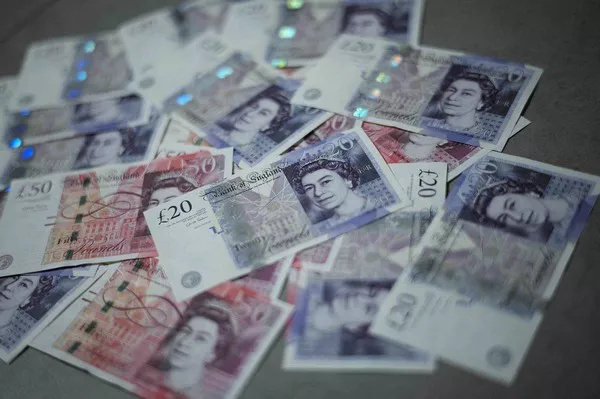The stability of a nation’s currency is a cornerstone of its economic health. In the global financial landscape, currencies like the British Pound Sterling play a pivotal role. The prospect of a currency collapse is a concern that warrants careful examination, as it can have far-reaching consequences. In this article, we will explore the potential scenarios and repercussions if the pound were to collapse.
The Causes and Warning Signs:
A currency collapse is often the result of a combination of economic, political, and external factors. Economic mismanagement, high levels of debt, inflation, and geopolitical instability are among the common culprits. Warning signs may include a decline in foreign exchange reserves, high levels of public debt, and persistent trade imbalances.
In the case of the British Pound, a collapse might be triggered by a sudden loss of confidence in the currency, possibly stemming from concerns about the country’s economic policies, political stability, or external shocks such as a global economic downturn or a major geopolitical event.
Immediate Impact on the Economy:
The immediate aftermath of a currency collapse would be a severe economic shock. One of the most immediate consequences would be a surge in inflation. The purchasing power of the pound would diminish rapidly, leading to a spike in the prices of imported goods and services. This, in turn, would erode the standard of living for citizens and result in a decline in real wages.
Businesses that rely on imported raw materials or goods would face increased production costs, potentially leading to layoffs and closures. The sudden depreciation of the currency would also make it more expensive for the government to service its debt, exacerbating the fiscal challenges.
Financial Markets and Investments:
The collapse of the pound would send shockwaves through financial markets. Investors would likely flee from British assets, leading to a sharp decline in stock prices and a spike in bond yields. The banking sector, highly sensitive to currency fluctuations, could face a crisis as the value of assets denominated in pounds plummet.
International investors holding British assets may experience substantial losses, triggering a ripple effect in global financial markets. The uncertainty surrounding the aftermath of a currency collapse would likely lead to increased market volatility, making it challenging for investors to make informed decisions.
Trade and Economic Relations:
The collapse of the pound would significantly impact international trade. The cost of imports would soar, leading to a deterioration of the trade balance. British exports, on the other hand, could become more competitive, but the overall impact on trade would depend on the ability of industries to adapt quickly to the new economic landscape.
Foreign direct investment (FDI) in the UK would likely decline as investors shy away from the heightened risks associated with a collapsed currency. Additionally, the UK’s ability to negotiate favorable trade agreements could be compromised, further hindering economic recovery.
Government Response and Policy Measures:
In the wake of a currency collapse, the government would be forced to take swift and decisive action to stabilize the economy. Central banks may intervene to restore confidence in the currency, potentially through interest rate hikes or direct currency interventions. However, these measures could have their own set of challenges, including the risk of exacerbating economic downturns and stifling economic growth.
Austerity measures, such as spending cuts and tax hikes, might be implemented to address the fiscal challenges arising from the collapse. These measures, while aimed at restoring economic stability, could lead to social unrest and political instability.
Long-Term Structural Changes:
The long-term consequences of a currency collapse would likely include significant structural changes to the economy. Rebuilding trust in the currency and attracting foreign investment would be paramount. The government might need to implement reforms to address the underlying issues that led to the collapse, such as fiscal mismanagement and economic imbalances.
Furthermore, a collapsed currency could prompt a reassessment of the country’s economic model and policies, potentially leading to a shift in priorities and a reevaluation of global economic relationships.
See Also Is the Pound Predicted to Strengthen in the Near Future?
Conclusion:
While the collapse of a major currency like the British Pound Sterling is a dire scenario, it is essential to recognize that economic challenges are not insurmountable. Governments, policymakers, and citizens play pivotal roles in shaping the response to such crises. By implementing prudent economic policies, fostering international cooperation, and addressing the root causes, nations can navigate through the storm and rebuild a stable and resilient economic foundation.


